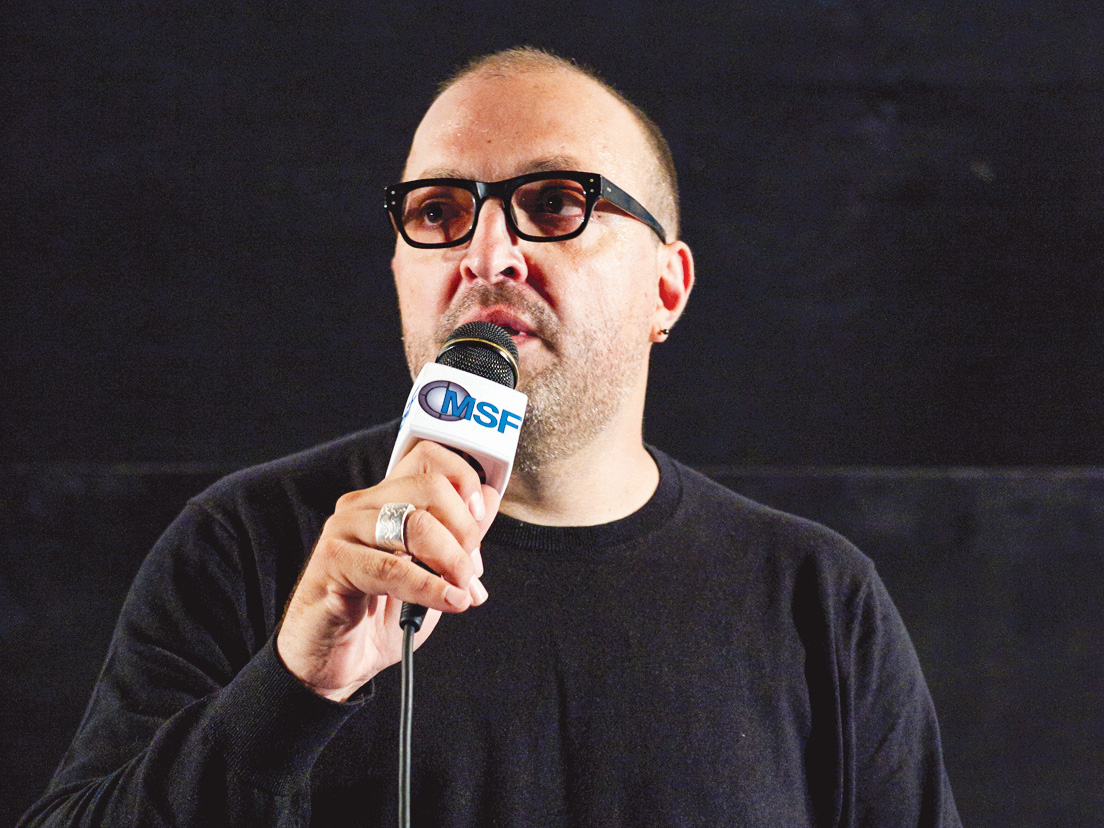A Never-Graduating Philosophy
 Rob Milazzo
Rob MilazzoRob Milazzo, The Robertson School of Communication
Films, albums, production companies: These are just a few of the projects coming out of Rob Milazzo’s media production classes. Milazzo, an assistant professor in the Robertson School of Communication, embodies the intersection of creative practice and innovative pedagogy.
His journey from filmmaker and theater director to educator wasn’t traditional, but it shaped a teaching philosophy centered on curiosity and continuous learning. Through his founding of The Modern School of Film and his work at VCU, Milazzo has cultivated an approach that empowers students to push beyond conventional boundaries, creating real-world projects that reflect his belief that true education extends far beyond the classroom.
Q: Can you tell me about your career path prior to joining VCU?
A: In super-short, I made films and directed plays while I worked some super-enlightening day jobs. One of those day jobs was adjunct teaching for a handful of universities in New York, which led to my love for and approach to teaching, an approach I reflect on and adjust each term, every week. When people ask, “Why do you teach?” I usually respond, “Because I want to learn.”
Q: What is The Modern School of Film? What was your goal in founding it?
A: The Modern School of Film began when a group of my senior undergraduate film and media students made it clear to me that, although they were about to graduate, they still wanted to learn. This crystallized, for me at least, that a building doesn’t make a school. Education, if one truly desires, is 24/7/365… across a lifetime. Armed with that philosophy and minimal resources (read: no money), I bartered some necessities, lent students whatever equipment I owned, incorporated, then built a curriculum I felt students would most benefit from in the “real world,” including enlisting public-facing masters as teachers. I probably did all of this backwards, but six continents and hundreds of master classes later, students of The Modern School of Film have become my ongoing inspirations and some of my closest friends. I think of them daily — and see them often on HBO Max and Netflix, ha! — and feel as though they’re in the rooms with me at VCU. Hopefully, they’ll never graduate.
Q: Your VCU students have created some amazing projects, whether forming a production company, producing documentaries, or assembling an album. How did those projects evolve? How do you encourage that creativity?
A: Do you have a year? Ha. First, let me be clear: I’m my students’ passenger. There’s no singular manner nor motivation for what they’ve agreed to take on; though, finding motivation beyond oneself tends to unlock something. So, I guess the answer to both of your questions is “empathy.” Performative empathy is still available and supplies are endless, but truly letting go of who you are and what’s best for you, specifically? Yes, more of that.
Q: What do you see as the future of media?
A: What I see and what I hope are two different things. I see the unending untethering of us to our media — the things we watch and listen to and the ways in which we watch and listen to them — but that doesn’t mean we’re separating. The lines that bind us will become increasingly less perceptible, toward invisibility. All this is to say, we may be done with media, but media sure as heck ain’t done with us.